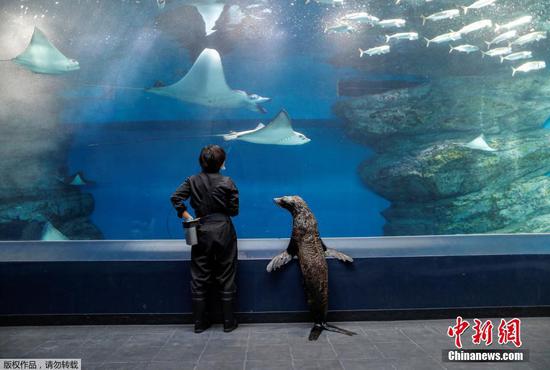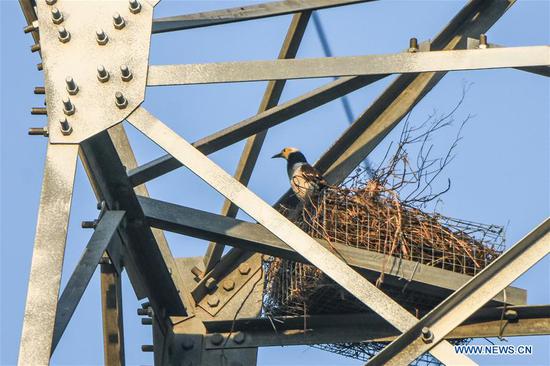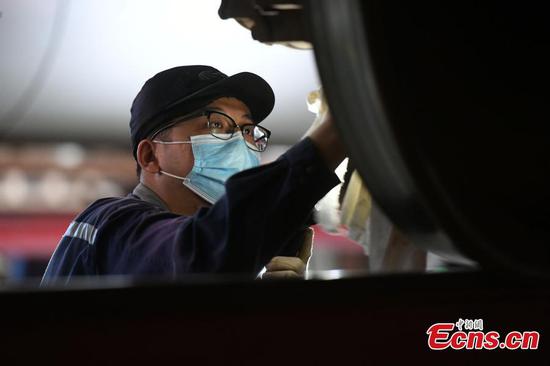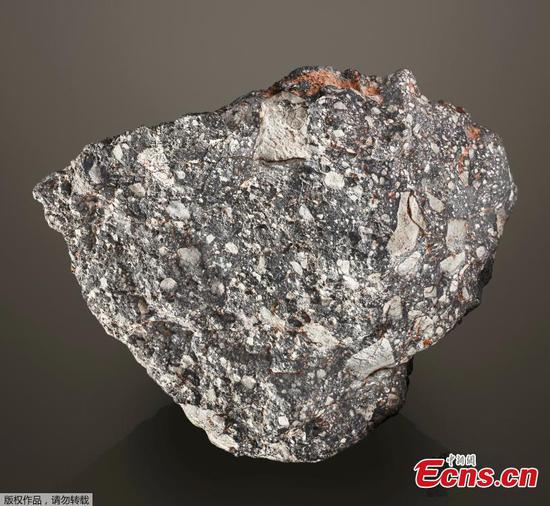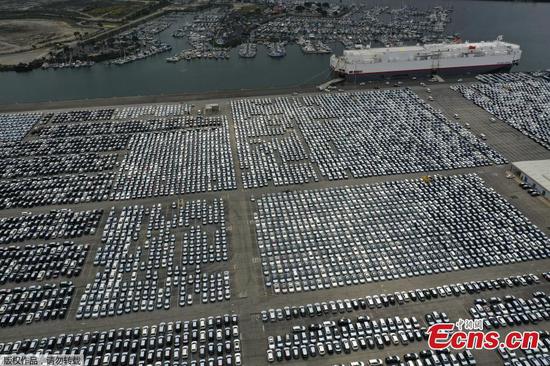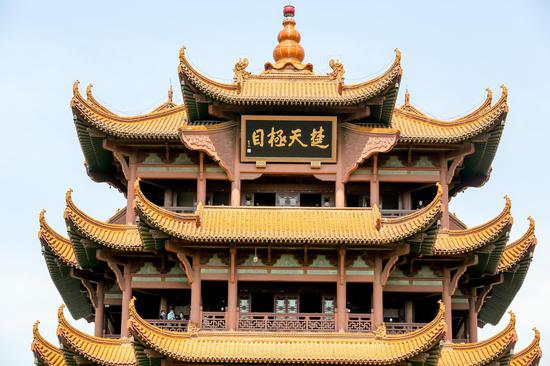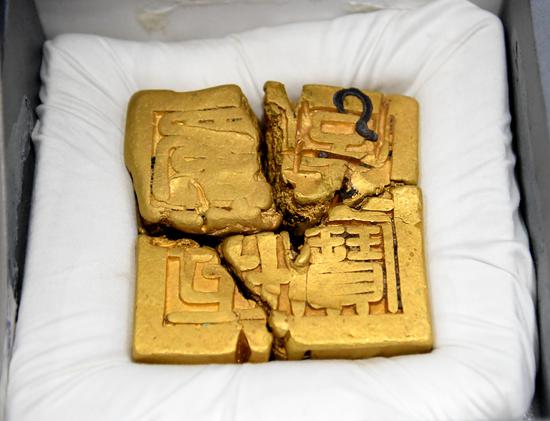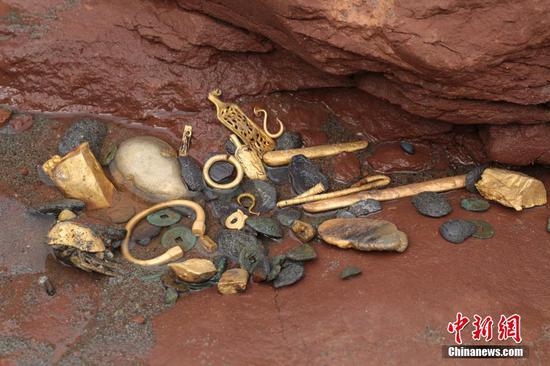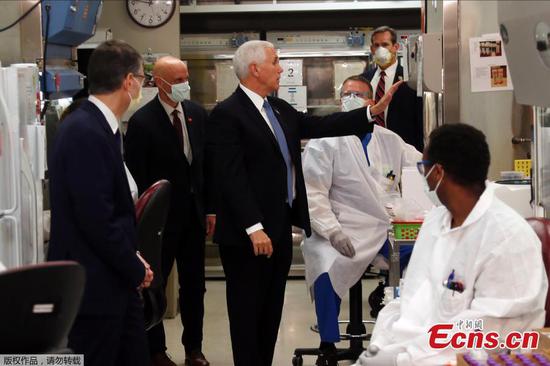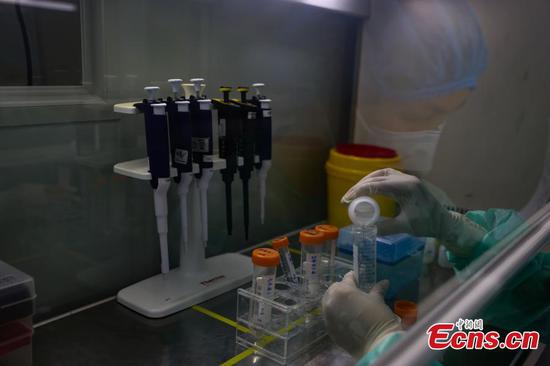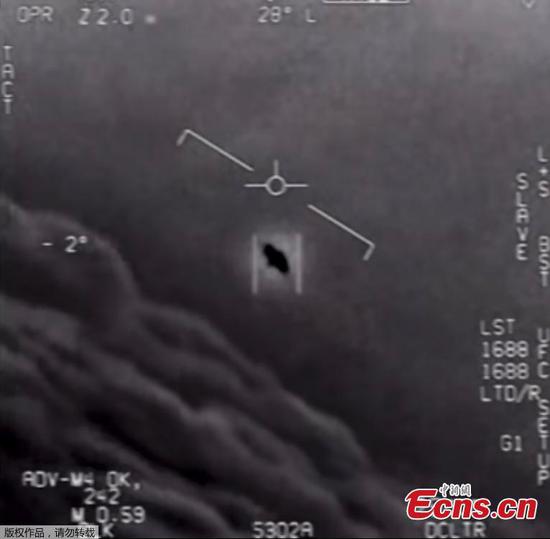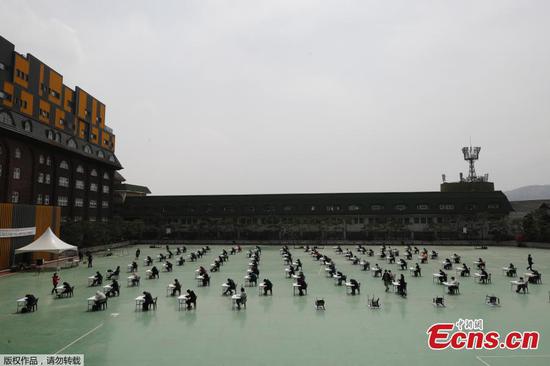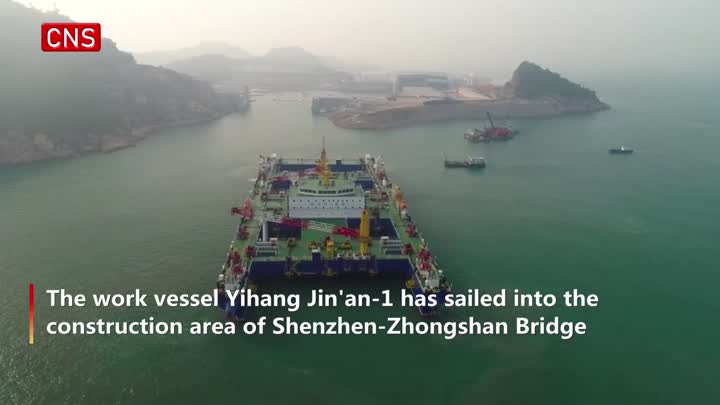
China's new large carrier rocket Long March 5B makes its first flight at the Wenchang Space Launch Center in Hainan province on Tuesday. (SU DONG/FOR CHINA DAILY)
Prototype of nation's next-generation manned spacecraft placed in orbit
China's Long March 5B carrier rocket made its first flight on Tuesday evening at the Wenchang Space Launch Center in Hainan province, marking a new chapter in the country's manned space program, according to the China Manned Space Agency.
The 18-story-tall rocket blasted off at 6 pm from a launchpad in the coastal center and soon thundered into the bright blue sky, video clips showed.
Nearly nine minutes later, it placed prototypes of China's next-generation manned spacecraft and an experimental cargo retrieval craft as well as more than 10 experimental payloads in low-Earth orbit, the agency said in a statement.
After the launch, the Communist Party of China Central Committee, the State Council and the Central Military Commission sent a letter to researchers, engineers and support staff involved in the mission, saying the country and the people are grateful for their contribution and that this remarkable success will inspire the entire nation.
The China Manned Space Agency said the flight successfully verified the overall design and technologies of the new rocket and also marked the beginning of the third stage in China's manned space program, which aims to put a manned space station into orbit.
Long March 5B is central to the space station program because it is now the only Chinese launch vehicle capable of carrying large space station parts into orbit.
Ji Qiming, a senior China Manned Space Agency official, said after the launch that three Long March 5B flights will be made to put major components of China's manned space station into orbit, where they will be assembled.
"In addition, four Long March 2F and four Long March 7 missions will be made by the end of 2022 to ferry astronauts and cargo ships to build the station," he said, adding that the selection of the third group of Chinese astronauts will be finished around July.
Zhou Jianping, the Chinese manned space program's chief designer, said the space station will inject huge momentum into the country's science and technology efforts.
With its payload of about 22 metric tons, Tuesday's mission made the Long March 5B the most powerful Chinese rocket when it comes to carrying capacity into low-Earth orbit. It also has realized a 62-year-old aspiration expressed at a CPC Central Committee meeting in May 1958 by Chairman Mao Zedong, who said that "we shall launch a 20,000-kilogram spacecraft" as he described the nation's desire to start its space program.
Long March 5B is the first variant of the Long March 5, which was launched on its third mission from the Wenchang center in December. It has one core stage and four boosters.
The rocket is 53.7 meters long, with a core-stage diameter of 5 meters. It is propelled by liquid oxygen, liquid hydrogen and kerosene and has a liftoff weight of 849 tons.
The largest difference between the appearance of the Long March 5 and Long March 5B is that the new model is about 4 meters shorter and that it has a much larger fairing-the largest of its kind among all Chinese carrier rockets, said Li Dong, chief designer of the Long March 5 family at the China Academy of Launch Vehicle Technology in Beijing.
The two types also have different functions-Long March 5 is responsible for launching large satellites to high orbits or lifting deep-space probes, while the new model is tasked with sending large spacecraft into low-Earth orbit, he said on Tuesday.
The first Long March 5B was moved to the launch center in February by two rocket transportation ships-Yuanwang 21 and Yuanwang 22-from the northern coastal city of Tianjin, home to the rocket's manufacturing complexes, and had been undergoing pre-launch preparations since then.














